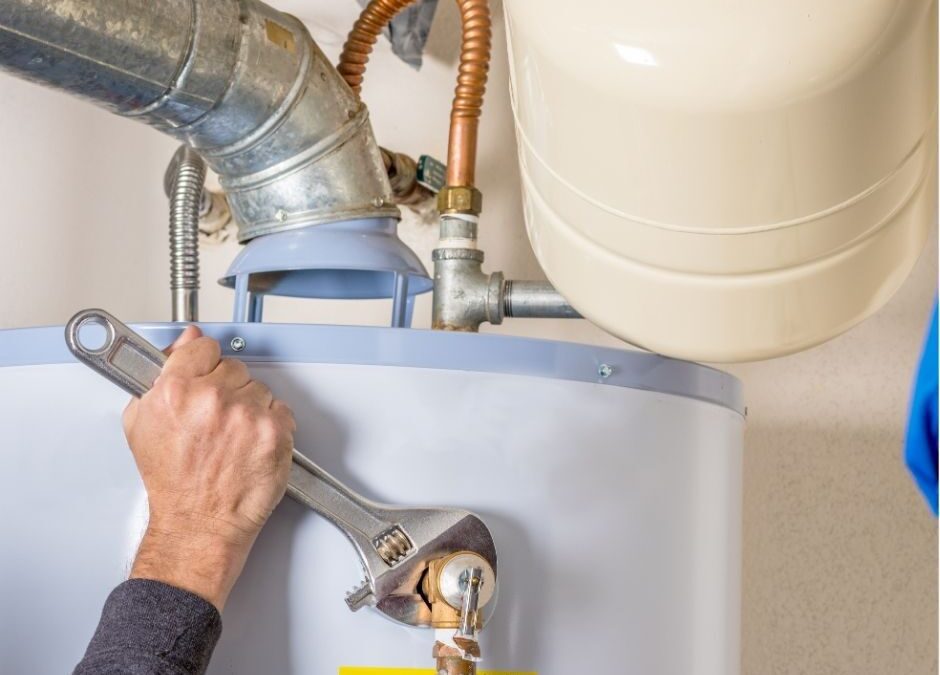Water heaters are essential appliances in most homes and businesses, providing hot water for a range of daily activities, including bathing, cooking, and cleaning. However, like any appliance, a water heater requires regular maintenance to function efficiently. One critical aspect of this maintenance is flushing the water heater, a process that helps remove sediment build-up and prolong the unit’s life. This article will examine the frequency of flushing your water heater, the importance of maintaining it, factors that influence the frequency of maintenance, and the proper procedure for performing the flushing process.
Understanding Water Heater Maintenance
Importance of Water Heater Flushes
Flushing your water heater is essential for several reasons. Over time, minerals and sediments from hard water can accumulate at the bottom of the tank. This buildup can reduce the heater’s efficiency, causing it to work harder to heat water and ultimately leading to higher energy bills. Sediment accumulation can cause overheating, which may result in tank damage and even potential leaks. Routine water heater maintenance helps maintain optimal performance and efficiency, ensuring a reliable supply of hot water. Flushing your water heater is an easy maintenance task that most homeowners can perform themselves.
In addition to improving efficiency, flushing your water heater can also extend its lifespan. Water heaters are a significant investment, and routine maintenance, including flushing, can prevent premature failures. A well-maintained unit is less likely to develop leaks or other issues that require costly repairs or replacements. Hence, understanding the importance of flushing is essential for homeowners.
Common Issues Caused by Lack of Water Heater Maintenance
Failing to flush your water heater regularly can lead to a host of issues. One common problem is the formation of rust and corrosion, which can significantly compromise the tank’s integrity. If you notice brown or discolored water during the flushing process, this is a clear sign of sediment buildup at the bottom of the tank. Stagnant water can foster bacteria growth, leading to foul odors emanating from your hot water supply. Over time, this can also affect the taste of your water. The accumulation of sediment can cause the heating elements to malfunction, resulting in increased repair costs and decreased energy efficiency.
Another issue that can arise from neglecting water heater maintenance is the formation of an air pocket at the top of the tank. This air pocket can hinder the heating process, making it difficult for the heater to consistently provide hot water. All these problems underscore the necessity of routine water heater maintenance to keep your unit in optimal condition.
Factors Influencing Flushing Frequency
Type of Water Heater
The type of water heater you have can significantly impact how often you need to flush it. For instance, tank-type water heaters generally require more frequent flushing compared to tankless models. Conventional tank-type heaters can accumulate sediment more readily due to their design, whereas tankless heaters heat water on demand and do not store water, thereby minimizing sediment build-up. However, tankless heaters may still need descaling every few years, depending on water quality.
Additionally, hybrid, electric, and gas water heaters might have varying flushing needs. Gas water heaters often have a dip tube that directs cold water to the bottom of the tank, which can sometimes minimize sediment accumulation. The dip tube is typically located at the top of the tank, while the drain valve is usually near the bottom of the water heater. Regardless of the type, understanding your specific unit’s requirements is crucial for effective maintenance.
Water Quality and Hardness
The quality of your water plays a significant role in determining how often you need to flush your water heater. Hard water, which contains high levels of minerals such as calcium and magnesium, is particularly prone to causing sediment buildup. If you live in an area with hard water, flushing your water heater every six months may be advisable to prevent significant accumulation. On the other hand, if your water is relatively soft, you may only need to flush it once a year.
Homeowners can test their water quality using simple testing kits available at local hardware stores or online. By understanding the hardness of your water and its impact on your water heater, you can develop a more effective maintenance schedule tailored to your specific needs.
Recommended Flushing Schedule
General Guidelines
As a general guideline, most experts recommend flushing your water heater at least once a year. This annual maintenance can prevent the problems associated with sediment build-up and ensure that your heater operates efficiently. However, as mentioned earlier, if you have hard water, it is advisable to flush more frequently every 6 months. These regular inspections can also help determine the necessity for flushing based on the amount of sediment observed during maintenance checks.
It’s important to note that water heater models may have specific recommendations from the manufacturer regarding flushing frequency. Consulting a professional plumber can provide insights tailored to your system and help establish an appropriate maintenance schedule. After flushing, ensure that everything is put back in order and reassembled correctly before completing the job.
Specific Recommendations from Plumbers
Local Charleston plumbers such as Smoak’s Comfort Control often possess valuable insights gained from their field experience. Many suggest that homeowners in areas with hard water should consider high-efficiency whole-home water filtration systems to reduce mineral content, consequently lessening the need for frequent flushing.
Additionally, some plumbers recommend performing a visual inspection of the water heater’s drain valve during routine checks to gauge the amount of sediment accumulating and adjust the flushing schedule accordingly. Seasonal maintenance checks, especially before winter, can help ensure that your heater is ready for increased demand. Plumbers can offer tailored advice based on local water conditions, so it may be beneficial to consult a qualified team of plumbing professionals for an expert assessment.
Regional Considerations for Plumbers in Mt. Pleasant, SC
Residents in specific regions, such as Mount Pleasant, SC, may face unique challenges regarding water quality and heater maintenance. The water in this area may vary in hardness due to local geological conditions, which can affect the flushing frequency. Local plumbers often recommend keeping an eye on the area’s water quality reports, which can provide essential information on the water’s hardness or softness.
Additionally, the proximity to saltwater can increase corrosion risks, making regular maintenance even more crucial. Homeowners in coastal areas, such as Mount Pleasant, should also consider the additional challenge of humidity, which can impact water heater performance. Consulting local plumbing experts can offer residents tailored recommendations to address these regional factors effectively. Choosing a locally owned and operated plumbing business ensures you receive personalized service and local expertise, making them a reliable choice for your specific needs.
When to Call a Professional
Signs Your Water Heater Needs Expert Attention
While regular maintenance and water heater flushes can help prevent many common water heater issues, there are instances where calling a professional is necessary. If you notice a decrease in the hot water supply, unusual noises coming from the unit, signs of corrosion around the tank, or any plumbing issue, it is time to consult a plumber. If your water heater is leaking or if you detect a rotten egg smell, this could indicate a serious issue that requires immediate attention.
It’s also important to be aware of the age of your water heater. Most units have a lifespan of 10 to 15 years. If your heater is approaching this age and starts showing signs of malfunction, a professional inspection can help determine whether repair or replacement is the best course of action.
Benfits of Hiring Local Plumbers
Hiring local plumbers offers several advantages, particularly when it comes to addressing water heater issues. Local professionals possess invaluable insight into the specific challenges faced by residents in the area, including water quality and environmental factors that affect water heaters. They can provide tailored maintenance tips and recommendations based on their experience with similar units in your region. Reputable local plumbers are licensed and insured, providing you with confidence in their professionalism and commitment to safety. They offer a full range of plumbing services tailored to meet your needs.
Furthermore, local plumbers often offer prompt service and can quickly respond to emergencies, minimizing water damage and costly repairs. They are also familiar with local building codes and regulations, ensuring that any work performed is compliant and safe. By choosing local services, homeowners can enjoy peace of mind knowing their water heater is in capable hands.
Understanding how often to flush your water heater and the importance of maintenance cannot be overstated. Regular flushing prevents sediment build-up, enhances efficiency, and prolongs the lifespan of your unit. Factors such as the type of water heater, water quality, and usage patterns all influence how often you should perform this essential task. By following recommended flushing schedules and learning how to flush your water heater safely, you can ensure optimal performance and prolong its lifespan.
Should you encounter issues or if your water heater requires more than basic maintenance, it is always a wise choice to call a professional. Local plumbers can provide tailored solutions based on regional considerations, helping to keep your heating system running smoothly for years to come.
Customer satisfaction, comfort, and safety are our top priorities—customers can trust local professionals to ensure they are satisfied with the service, and guarantees are available. It’s easy to find reliable plumbing services in the area, giving you peace of mind and confidence in your choice.
Further Reading on Water Heater Maintenance
For more information on maintaining your water heater, as well as tips for maintaining other plumbing fixtures such as toilets, consider the following resources:

